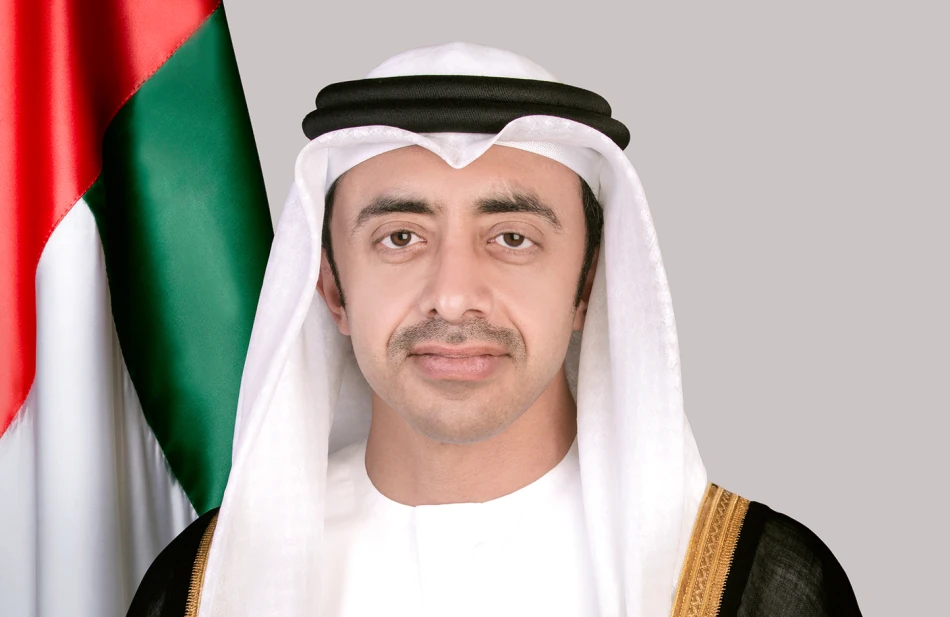
UAE Minister Welcomes France's Pledge to Recognize Palestinian Statehood
UAE Welcomes France's Move Toward Palestinian Statehood Recognition as Regional Diplomacy Shifts
The UAE has publicly endorsed French President Emmanuel Macron's announcement regarding France's intention to recognize Palestinian statehood, marking another significant diplomatic development in the evolving Middle Eastern landscape. Sheikh Abdullah bin Zayed Al Nahyan, the UAE's Deputy Prime Minister and Foreign Minister, characterized the French position as a crucial step toward revitalizing the two-state solution and establishing lasting regional peace.
Strategic Timing Amid Regional Transformation
The UAE's endorsement comes at a pivotal moment when traditional Middle Eastern alliances are being recalibrated. Despite the UAE's normalization of relations with Israel through the 2020 Abraham Accords, Abu Dhabi continues to advocate for Palestinian rights—a balancing act that reflects the complex realities of modern Gulf diplomacy.
Sheikh Abdullah emphasized that France's decision arrives at a "critical juncture" requiring collective international action to activate political processes and end the Palestinian-Israeli conflict. This language suggests the UAE views current regional dynamics as uniquely positioned for diplomatic breakthroughs.
The UAE's Evolving Middle East Strategy
Balancing Act Between Normalization and Palestinian Support
The UAE's response demonstrates how Gulf states are navigating their post-Abraham Accords relationships. Rather than abandoning Palestinian causes after normalizing with Israel, the Emirates appears to be leveraging its enhanced regional standing to advocate for comprehensive solutions that address both Israeli security concerns and Palestinian aspirations.
This approach mirrors similar strategies employed by other Abraham Accords signatories, who have maintained that normalization with Israel should ultimately serve broader regional peace objectives, including Palestinian statehood.
International Partnership Building
Sheikh Abdullah's statement emphasized continued collaboration with "regional and international partners" to achieve sustainable conflict resolution. This language indicates the UAE's intention to work within existing diplomatic frameworks while potentially expanding its influence in Palestinian-Israeli negotiations.
Implications for Regional Diplomacy
European Engagement in Middle Eastern Affairs
France's move toward Palestinian recognition, welcomed by the UAE, signals growing European involvement in Middle Eastern conflict resolution. This development could provide alternative diplomatic channels beyond traditional U.S.-led initiatives, potentially offering more balanced approaches that address both Israeli and Palestinian concerns.
The UAE's positive response to European diplomatic initiatives suggests Gulf states may increasingly view diversified international engagement as beneficial for regional stability, rather than relying solely on American mediation.
Momentum for Two-State Solution
By framing France's position as supporting the two-state solution, the UAE is reinforcing international consensus around this framework while positioning itself as a constructive regional actor. This stance allows the Emirates to maintain credibility with both Western partners and Arab populations who remain sympathetic to Palestinian causes.
The reference to UN resolutions and international agreements indicates the UAE's preference for working within established legal frameworks rather than pursuing alternative conflict resolution mechanisms that might bypass Palestinian statehood aspirations.
Looking Forward: Strategic Calculations
The UAE's endorsement of French recognition efforts reflects broader strategic calculations about regional stability and international standing. By supporting Palestinian statehood while maintaining Israeli ties, the Emirates positions itself as a potential bridge-builder capable of facilitating dialogue between conflicting parties.
This diplomatic positioning could enhance the UAE's role in future peace negotiations while demonstrating to domestic and regional audiences that normalization with Israel hasn't compromised Emirati commitment to Palestinian rights. Such balancing acts may become increasingly important as other Arab states consider their own approaches to Israeli-Palestinian issues in the post-Abraham Accords era.
Most Viewed News

 Sara Khaled
Sara Khaled






